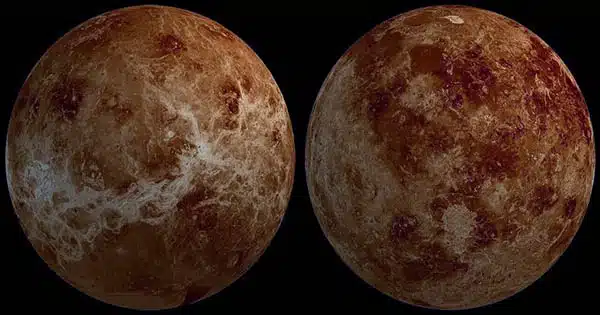A group of chemists, biologists, and planetary scientists from MIT, Nanoplanet Consulting, Harvard University, and the University of Alberta discovered in lab experiments that conditions in Venus’ clouds may support life. The group outlines their lab experiments and results in a report published in Proceedings of the National Academy of Sciences.
Prior study has revealed that the surface of Venus averages around 462°C, which is much too hot to support life. However, the planet’s atmosphere is much cooler, particularly in its clouds, with temperatures ranging from 30°C to 70°C, well within a range suitable for life. Sulfuric acid clouds, on the other hand, are significantly more acidic than any clouds found on Earth. Nonetheless, the potential of life existing in such an environment piqued the researchers’ interest. They set up studies to see if RNA and/or DNA bases might survive in such conditions.
The researchers exposed nucleic acid bases such as cytosine, adenine, thymine, guanine, and uracil to chemical conditions similar to those found in Venusian clouds. They subsequently repeated the process with pyrimidine and purine nucleic acid base cores, as well as 2,6-diamino purine. They next used NMR and UV spectroscopy to determine the stability of the acid bases. They discovered that the acid bases stayed stable under such conditions for up to two weeks, implying that they may do the same in Venusian clouds.
The researchers indicate that their findings may surprise planetary scientists, but they doubt that many chemists would be startled. They point out that it is general knowledge that oil refining requires the use of high quantities of sulfuric acid, which results in the formation of organic chemicals, some of which are aromatic molecules. They imply that space scientists searching for life elsewhere in the cosmos may need to broaden their search to encompass planet atmospheres as well as their surfaces.















